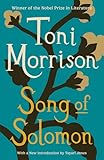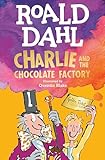“It is February,” Anne Carson once wrote, perhaps from within the polar vortex. “Ice is general.” By the time we get to February, the days may be getting longer, but there is a weariness to the winter. Hibernation’s novelty has long expired, and the fruits of the fall harvest are running low. On the coldest day of 1855, Henry David Thoreau noted the old saying that “by the 1st of February the meal and grain for a horse are half out.” (He spent the rest of that frozen month skating on the local rivers.)

 But in the middle of the month the calendar calls to break the ice with romance. We’ve settled on February 14, the feast day of St. Valentine, as love’s holiday, but there’s little evidence that any of history’s St. Valentines were linked to romance until Geoffrey Chaucer, first artificer of so much in our language, joined them in his Parliament of Fowls: “on Seynt Valentynes day, / Whan every foul cometh there to chese his make.” (And even he may have had an Italian St. Valentine’s festival in May, not February, in mind.) We celebrate birthdays too in February: Lincoln’s, for instance, a holiday Richard Wright chose for his first novel, Cesspool (published after his death as Lawd Today), a violent and raunchy satire of one day in the lives of a Chicago postal worker and his friends. And some authors have celebrated their own February birthdays: James Joyce asked that Ulysses be published on the day he turned forty, February 2, 1922, while Toni Morrison, one of the least autobiographical of novelists, nevertheless tucked a small hint of herself into the first page of Song of Solomon: the day the insurance agent Robert Smith announces he will fly from the cupola of Mercy Hospital is February 18, 1931, the date of Morrison’s own birth in Lorain, Ohio.
But in the middle of the month the calendar calls to break the ice with romance. We’ve settled on February 14, the feast day of St. Valentine, as love’s holiday, but there’s little evidence that any of history’s St. Valentines were linked to romance until Geoffrey Chaucer, first artificer of so much in our language, joined them in his Parliament of Fowls: “on Seynt Valentynes day, / Whan every foul cometh there to chese his make.” (And even he may have had an Italian St. Valentine’s festival in May, not February, in mind.) We celebrate birthdays too in February: Lincoln’s, for instance, a holiday Richard Wright chose for his first novel, Cesspool (published after his death as Lawd Today), a violent and raunchy satire of one day in the lives of a Chicago postal worker and his friends. And some authors have celebrated their own February birthdays: James Joyce asked that Ulysses be published on the day he turned forty, February 2, 1922, while Toni Morrison, one of the least autobiographical of novelists, nevertheless tucked a small hint of herself into the first page of Song of Solomon: the day the insurance agent Robert Smith announces he will fly from the cupola of Mercy Hospital is February 18, 1931, the date of Morrison’s own birth in Lorain, Ohio.
Here is a selection of recommended reading for February, full of love, birthdays, and late-winter gloom:
 Persuasion by Jane Austen (1818)
Persuasion by Jane Austen (1818)
Austen readers looking for a love story in the month of valentines have many choices, but her last novel, the story of an overlooked but independent woman finding love despite obstacles of her own creation, offers perhaps the most moving moment in all her work: the unexpected delivery of a love letter upon which all depends.
Domestic Manners of the Americans by Frances Trollope (1832)
Mrs. Trollope’s February arrival in the frontier town of Cincinnati (she left her future-novelist son at home in England) may have led to business disaster — the glamorous department store she struggled to build there failed — but ultimately it made her fortune, thanks to this sharp-tongued and coolly observant travelogue, a scandal in America but also a bestseller.
 Far from the Madding Crowd by Thomas Hardy (1874)
Far from the Madding Crowd by Thomas Hardy (1874)
There are plenty of obstacles between Bathsheba Everdene and true love in Hardy’s breakthrough novel, beginning with an idle and frolicsome Valentine’s Day joke that turns deadly serious. This being Hardy, more death follows.
Life and Times of Frederick Douglass by Frederick Douglass (1881; 1892)
The third autobiography of Douglass, who chose to celebrate his unrecorded birthday on Valentine’s Day, doesn’t carry the compact power of his original 1845 slave narrative, but it’s a fascinating and ambivalent self-portrait of a half-century in the public life that was launched by that bestselling Narrative.
 Charlie and the Chocolate Factory by Roald Dahl (1964)
Charlie and the Chocolate Factory by Roald Dahl (1964)
Every day is more or less the same at the Buckets’ tiny ramshackle house—watery cabbage soup for dinner and the winter wind whistling through the cracks—until young Charlie Bucket finds a dollar in the snow and then a Golden Ticket in his chocolate bar inviting him to appear at the Wonka factory gate on February 1 at 10 o’clock sharp.
The Left Hand of Darkness by Ursula K. LeGuin (1969)
One of the most challenging and imaginative of love stories takes place entirely in winter, as an envoy from Earth has to learn to negotiate an ice-bound planet populated by an androgynous people who can take the role of either sex during their monthly heat.
Moortown Diary by Ted Hughes (1979)
These poems from the decade Hughes and his third wife took to farming in North Devon, the country of her birth, are journal entries hewn rough into verse, wet and wintry like the country and full of the blood and being of animals.
 The Breaks of the Game by David Halberstam (1981)
The Breaks of the Game by David Halberstam (1981)
February is doldrums season in the National Basketball Association, well into the slog of the schedule but still far from the urgency of the playoffs, and few have captured the everyday human business of the itinerant professional athlete better than Halberstam in his portrait of the ’79-’80 Trailblazers’ otherwise forgettable season.
Ravens in Winter by Bernd Heinrich (1989)
Over four Maine winters, with as much ingenuity and persistence as his intelligent subjects and an infectious excitement for the drama of the natural world — the “greatest show on earth” — Bernd Heinrich tried to solve the mystery of cooperation among these solitary birds, better known as literary symbols than as objects of study.
 Julius Knipl, Real Estate Photographer by Ben Katchor (1996)
Julius Knipl, Real Estate Photographer by Ben Katchor (1996)
“By the second week in February, the city’s wholesale calendar salesmen pack up their samples and enter a state of self-induced hibernation,” begins one of the comic-strip tales in Katchor’s second Knipl collection, which celebrates the minor industries, fading establishments, and idle off-seasons of his unnamed city with a profound, if paunchy, elegance.
 February House by Sherrill Tippens (2005)
February House by Sherrill Tippens (2005)
Fans of literary anecdotes and surprising artistic encounters will find an embarrassment of riches in this account of the short time in the early ’40s when Carson McCullers, W. H. Auden, Paul and Jane Bowles, stripper-turned-novelist Gypsy Rose Lee, and others shared a Brooklyn brownstone that got its nickname because so many among them (McCullers, Auden, Jane Bowles, and house organizer George Davis) had birthdays in this month.








